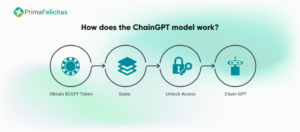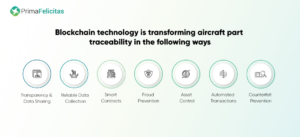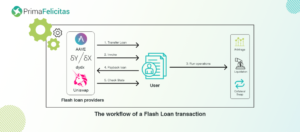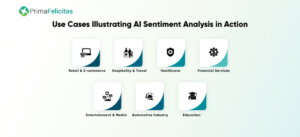An Overview of the Alcohol Beverages Industry
Alcoholic beverages are part of the drinks industry and have many spirit products such as brandy, gin, beer, whisky, rum, wine, etc. All of these products contain different levels of alcohol. According to research, the global market for alcoholic beverages has sold products of over 1.49 trillion dollars worldwide. As of 2021, the global alcoholic beverages market was valued at 1.6 trillion dollars, and by 2031, it is expected to reach a value of 2 trillion dollars, with growth at a CAGR of 2.2%. According to statistics, approximately globally, a third of all alcohol production is illicit, which rises to half in places such as Africa and China.
These results pose a serious health risk to billions of people worldwide. To prevent the sale and consumption of such illegal and counterfeit alcoholic beverages, governments and international organizations have introduced regulations and policies. These norms aim to control people from consuming counterfeit alcoholic beverages. But the cost of legally produced alcoholic beverages is high, and some unauthorized producers and smugglers take advantage of this situation by producing illegal and counterfeit alcoholic beverage products that are unsafe for consumption and are sold cheaply. To tackle this situation, authorities are monitoring and controlling the entire supply chain of alcoholic beverages using traceability. They arrange regular inspections to detect and prevent the distribution of illicit products in the market.
Blockchain introduction
Blockchain is a decentralized, tamper-resistant digital ledger/distributed database that facilitates the secure and transparent recording, verification, and storage of information. It works through a network of computers or nodes, where every node has a copy of the entire chain of blocks. Each block contains a list of transactions or data, which, once added, becomes almost impossible to change or manipulate the information within. Blockchain’s immutability is enabled through cryptographic hashes and consensus algorithms. This technology has proved its eminence and is being implemented across multiple domains, not just solely in cryptocurrencies. Some examples are supply chain management, smart contracts, identity verification, and decentralized applications, thus revolutionizing industries with trust, efficiency, and accountability.
Traceability
Traceability is the capacity to track and trace a product or item’s history, location, and movement from its origin to its present or ultimate destination. It entails capturing data regarding the different steps, entities, and procedures involved in the item’s manufacturing, handling, and distribution.
The product’s traceability gives stakeholders a clear view of the route and grants them access to information about the product’s origin, production processes, quality, and handling procedures. This information can contain specific information like the raw material’s origin, manufacturing methods, storage conditions, modes of transit, and sale locations. Businesses and consumers can have more visibility and transparency into the supply chain by enabling traceability. It promotes responsibility, regulation compliance, quality control, and product authenticity.
By enabling traceability, businesses and consumers can have better visibility and transparency into the supply chain. Traceability ensures the authenticity of products, quality control, compliance with regulations, and accountability. In case of any issues or recalls, traceability allows for quick identification of affected products and efficient containment of problems, enhancing consumer safety and confidence.
Need for Blockchain traceability in the alcoholic beverage industry
To control the supply chain of alcoholic beverages and prevent data tampering, we need a system that can track the product’s origin during manufacturing and distribution. Technically, the data stored on the Traditional database system can be altered. However, the one stored on the blockchain creates a secure database system, ensuring immutability. A supply chain management system built on blockchain will offer this much-needed tamper-resistant feature to the alcoholic beverage industry. This system ensures that the consumer can discover a product’s origin during its manufacturing and distribution, and the data should remain authentic and cannot be changed at any stage of the product life cycle. The blockchain system uses information security measures to protect data and communication. The system allows for traceability, meaning we can track the product’s journey and ensure its authenticity.
Alcoholic beverage supply chain traceability using blockchain technology
Blockchain technology is transforming the traceability of alcoholic beverage supply chains, providing transparency and accountability throughout the process. By leveraging blockchain’s decentralized and immutable ledger, each step in the supply chain, from raw material sourcing to production, distribution, and retail, can be securely recorded and verified. Blockchain traceability for alcoholic beverages ensures that the information about ingredients, origin, and production methods is accurate and tamper-proof. Using blockchain traceability real-time data accessibility feature, stakeholders can trace the journey of alcoholic beverages, helping to prevent counterfeiting, fraudulent practices, and unauthorized alterations.
Customers can also benefit from blockchain traceability in the alcoholic beverage industry. A unique identifier or digital token is assigned to each alcoholic beverage and its ingredients on the blockchain. This identifier carries information such as the product’s origin, batch number, production date, and any certifications. Consumers can retrieve detailed information about the product, such as the product’s origin, production methods, and other relevant details. It can be done by scanning a QR code or accessing a specific website. This helps customersmake informed purchasing decisions and ensures they get genuine, safe, and high-quality products.
Furthermore, the trustless nature of blockchain enables effective coordination between suppliers, manufacturers, distributors, and regulatory agencies, thus assisting in a more efficient and compliant supply chain environment. The implementation of blockchain technology in the alcoholic beverage business boosts customer confidence, encourages ethical practices, and improves the supply chain’s overall integrity. Any member of the supply chain, from producers to distributors to retailers, can use the blockchain to verify the orginality and quality of the alcoholic beverages they handle.
Blockchain traceability in the alcoholic beverage industry boosts transparency, trust, and accountability. It enables stakeholders to have a comprehensive view of an alcoholic beverage journey, from the fields to the bottle, promoting integrity and ensuring the authenticity of the product. Blockchain traceability offers strong data integrity, meaning the information is reliable.
Steps to Implement Blockchain Traceability in Alcohol beverage products
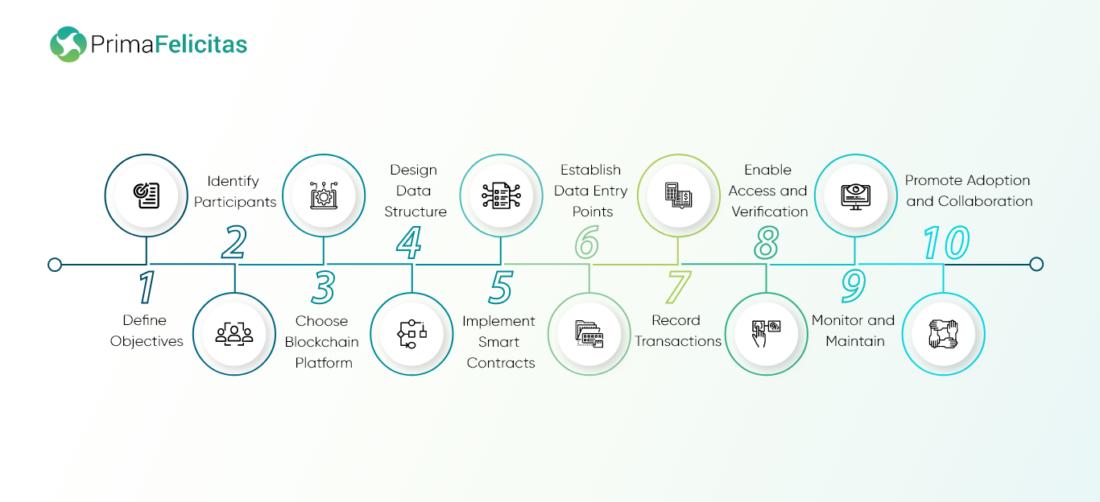

Alcoholic beverage traceability using blockchain could be implemented using the following steps:
- Define Objectives: Establish the goals and objectives of implementing blockchain traceability in the Alcohol beverage industry. Find specific challenges to address, such as fake or supply chain inefficiencies.
- Identify Participants: Identify the key participants in the alcohol beverage supply chain, including producers, distilleries, bottlers, distributors, retailers, and potential customers. Each participant is responsible for recording and verifying transactions on the blockchain.
- Choose Blockchain Platform: Select a suitable blockchain platform, considering factors like scalability, security, and interoperability. Decide whether to use a public blockchain like Ethereum or a permissioned blockchain. Determine the network structure and consensus mechanism to ensure agreement on transaction validity.
- Design Data Structure: Define the specific data points and transactions that will be recorded on the blockchain. This includes capturing information about the beverage production process, such as raw material sourcing, distillation methods, ageing periods, and quality control measures. Establish a standardized format for consistent data capture.
- Implement Smart Contracts: Consider using smart contracts to automate and ease actions or conditions within the supply chain. For instance, a smart contract can trigger quality control checks before proceeding to the next stage or enforce fair trade practices between suppliers and producers.
- Establish Data Entry Points: Determine where and how data will be entered into the blockchain. This can involve integrating existing systems, IoT devices, or manual data entry via user interfaces or mobile apps. Ensure the data entry points are secure and tamper-proof to keep data integrity.
- Record Transactions: Capture and record every transaction or event on the blockchain. This includes creating new batches of beverages, transportation updates, quality control checks, and obtaining certifications. Attach supporting documents to enhance transparency and traceability.
- Enable Access and Verification: Allow authorized participants, such as supply chain stakeholders and consumers, to access and verify the recorded data. Utilize QR codes, unique identifiers, or dedicated websites/applications for easy retrieval of information.
- Monitor and Maintain: Monitor the blockchain traceability system to ensure data accuracy, security, and reliability. Regularly update the blockchain network to include technological improvements and deal with any identified issues or vulnerabilities.
- Promote Adoption and Collaboration: Encourage all stakeholders in the Alcohol beverage industry to participate in the blockchain traceability initiative. Collaboration among participants improves the effectiveness and value of the system. Educate customers about the benefits of blockchain traceability, emphasizing transparency, authenticity, and sustainability.
By following these steps, the Alcoholic beverage industry can successfully implement Blockchain Traceability System and encourage transparency, trust, and accountability throughout the supply chain while serving customers with a reliable and authentic alcoholic drink experience.
Blockchain transforming the spirit/Alcohol beverage industry
Blockchain is transforming the spirit/Alcohol beverage industry by improving traceability, tackling counterfeiting, Validating product authenticity, streamlining supply chain operations, enabling direct consumer engagement, Encouraging collaboration, and improving data security. It is transforming the Alcohol beverage industry by offering many benefits and generating new opportunities. This technology provides remarkable opportunities to build trust, drive innovation, and elevate the overall consumer experience in the spirit industry, which increases the company’s revenue. So, using Blockchain Traceability System is a win-win for customers and other participants.
Conclusion
To summarize, Blockchain traceability is revolutionizing the alcoholic beverages supply chain, by promising better quality, authentic, and safer products for customers. Blockchain technology benefits everyone involved in the product’s lifecycle, from farmers to suppliers, contractors, regulatory agencies, stakeholders, sellers, and customers. By using blockchain in the alcoholic beverage industry, the industry can be more honest, improve drink safety, work faster and at a lower cost, build trust in products, prioritize environmental sustainability, and create new trade opportunities.
Many people worldwide are adopting blockchain traceability for alcoholic beverage supply chains due to its ease of implementation, cost-effectiveness, and time efficiency, leading to a significant transformation in the industry and improving the lives of many individuals.
Planning a new project or wish to upgrade your existing project to Web 3.0? Our expert team of professionals will assist you in every step of your development journey.
Looking for help here?
Connect with Our Expert for a detailed discussion
Post Views: 3
- SEO Powered Content & PR Distribution. Get Amplified Today.
- PlatoData.Network Vertical Generative Ai. Empower Yourself. Access Here.
- PlatoAiStream. Web3 Intelligence. Knowledge Amplified. Access Here.
- PlatoESG. Automotive / EVs, Carbon, CleanTech, Energy, Environment, Solar, Waste Management. Access Here.
- BlockOffsets. Modernizing Environmental Offset Ownership. Access Here.
- Source: https://www.primafelicitas.com/Insights/how-blockchain-is-transforming-alcohol-beverages-traceability/?utm_source=rss&utm_medium=rss&utm_campaign=how-blockchain-is-transforming-alcohol-beverages-traceability
- :has
- :is
- :not
- :where
- 1
- 2%
- 2021
- 2031
- 49
- a
- About
- access
- accessibility
- accessing
- According
- accountability
- accuracy
- accurate
- across
- actions
- added
- address
- Adopting
- Adoption
- ADvantage
- africa
- agencies
- Agreement
- aim
- Alcohol
- algorithms
- All
- allow
- allows
- also
- alterations
- altered
- among
- an
- and
- any
- applications
- approximately
- apps
- ARE
- AS
- assigned
- assist
- assisting
- At
- attach
- Authentic
- authenticity
- Authorities
- authorized
- automate
- BE
- becomes
- beer
- before
- being
- benefit
- benefits
- Better
- between
- BEVERAGE
- billions
- Block
- blockchain
- Blockchain network
- blockchain platform
- blockchain system
- blockchain technology
- Blocks
- boosts
- build
- build trust
- built
- business
- businesses
- but
- by
- cagr
- CAN
- cannot
- Capacity
- capture
- Capturing
- case
- certifications
- chain
- chains
- challenges
- change
- changed
- Checks
- China
- clear
- code
- codes
- collaboration
- Communication
- Company’s
- compliance
- compliant
- comprehensive
- computers
- conditions
- confidence
- Consensus
- consensus algorithms
- consensus mechanism
- considering
- consistent
- consumer
- Consumer Engagement
- consumer experience
- Consumers
- consumption
- contain
- Containment
- contains
- contract
- contractors
- contracts
- control
- controlling
- coordination
- Cost
- could
- Counterfeit
- counterfeiting
- create
- creates
- Creating
- cryptocurrencies
- cryptographic
- customer
- Customers
- cycle
- data
- data entry
- data points
- data security
- Data structure
- data tampering
- Database
- Date
- deal
- decentralized
- Decentralized Applications
- decide
- decisions
- dedicated
- define
- destination
- detailed
- details
- detect
- Determine
- Development
- Devices
- different
- digital
- Digital token
- direct
- discover
- distribution
- distributors
- documents
- dollars
- domains
- done
- Drink
- drinks
- drive
- due
- during
- each
- ease
- easy
- educate
- Effective
- effectiveness
- efficiency
- efficient
- ELEVATE
- emphasizing
- enabled
- enables
- enabling
- encourage
- encourages
- encouraging
- enforce
- engagement
- enhance
- enhancing
- ensure
- ensures
- ensuring
- entered
- Entire
- entities
- entry
- Environment
- environmental
- Environmental Sustainability
- establish
- etc
- ethereum
- ethical
- Event
- Every
- everyone
- examples
- existing
- expected
- experience
- expert
- facilitates
- factors
- fair
- Fair Trade
- fake
- farmers
- faster
- Feature
- Fields
- following
- For
- format
- fraudulent
- from
- generating
- genuine
- get
- Gin
- gives
- Global
- global market
- Globally
- Goals
- Governments
- grants
- Growth
- Half
- handle
- Handling
- Have
- Health
- help
- helping
- helps
- here
- High
- high-quality
- history
- How
- However
- HTTPS
- Identification
- identified
- identifier
- identifiers
- Identity
- Identity Verification
- Illegal
- illicit
- immutability
- immutable
- immutable ledger
- implement
- implementation
- implemented
- implementing
- impossible
- improve
- improvements
- improving
- in
- include
- includes
- Including
- Increases
- individuals
- industries
- industry
- information
- information security
- informed
- Initiative
- Innovation
- instance
- Integrating
- integrity
- interfaces
- International
- Interoperability
- into
- introduced
- involve
- involved
- iot
- iot devices
- issues
- IT
- ITS
- journey
- just
- Keep
- Key
- leading
- Ledger
- legally
- levels
- leveraging
- Life
- lifecycle
- like
- List
- Lives
- location
- locations
- lower
- maintain
- management
- manual
- Manufacturers
- manufacturing
- many
- Market
- material
- max-width
- meaning
- measures
- mechanism
- member
- methods
- Mobile
- mobile-apps
- modes
- Monitor
- monitoring
- more
- more efficient
- movement
- much-needed
- multiple
- Nature
- Navigation
- Need
- network
- New
- next
- node
- nodes
- norms
- number
- objectives
- obtaining
- of
- offer
- offering
- Offers
- on
- once
- ONE
- Operations
- opportunities
- or
- organizations
- origin
- Other
- Other participants
- our
- over
- overall
- overview
- part
- participants
- participate
- People
- periods
- permissioned
- permissioned blockchain
- Places
- platform
- plato
- Plato Data Intelligence
- PlatoData
- points
- policies
- pose
- Posts
- potential
- potential customers
- practices
- present
- prevent
- PrimaFelicitas
- Prioritize
- problems
- procedures
- process
- processes
- Produced
- Producers
- producing
- Product
- Production
- Products
- professionals
- project
- promising
- promotes
- promoting
- protect
- proved
- provides
- providing
- public
- public blockchain
- purchasing
- QR code
- qr-codes
- quality
- Quick
- Raw
- reach
- real-time
- real-time data
- record
- recorded
- recording
- regarding
- regular
- regularly
- Regulation
- regulations
- regulatory
- relevant
- reliability
- reliable
- remain
- remarkable
- research
- responsibility
- responsible
- Results
- retail
- retailers
- revenue
- Revolutionizing
- Rises
- Risk
- Route
- safe
- safer
- Safety
- sale
- Scalability
- scanning
- secure
- securely
- security
- Security Measures
- Sellers
- serious
- serving
- should
- significant
- situation
- smart
- smart contract
- Smart Contracts
- So
- sold
- solely
- some
- Sourcing
- specific
- spirit
- Stage
- stakeholders
- statistics
- Step
- Steps
- storage
- stored
- streamlining
- strong
- structure
- Successfully
- such
- suitable
- summarize
- suppliers
- supply
- supply chain
- supply chain management
- Supply chains
- Supporting
- Sustainability
- system
- Systems
- tackle
- tackling
- Take
- tamper-proof
- team
- technically
- technological
- Technology
- that
- The
- the information
- Them
- These
- they
- Third
- this
- Through
- throughout
- Thus
- time
- to
- token
- Trace
- Traceability
- track
- trade
- traditional
- transaction
- Transactions
- Transformation
- transforming
- transit
- Transparency
- transparent
- transportation
- trigger
- Trillion
- Trust
- trustless
- ultimate
- unique
- Update
- Updates
- upgrade
- use
- User
- uses
- using
- utilize
- validating
- value
- valued
- Verification
- verified
- verify
- verifying
- via
- View
- views
- visibility
- Vulnerabilities
- was
- we
- Website
- whether
- which
- while
- will
- Win-Win
- WINE
- with
- within
- Work
- works
- worldwide
- You
- Your
- zephyrnet


